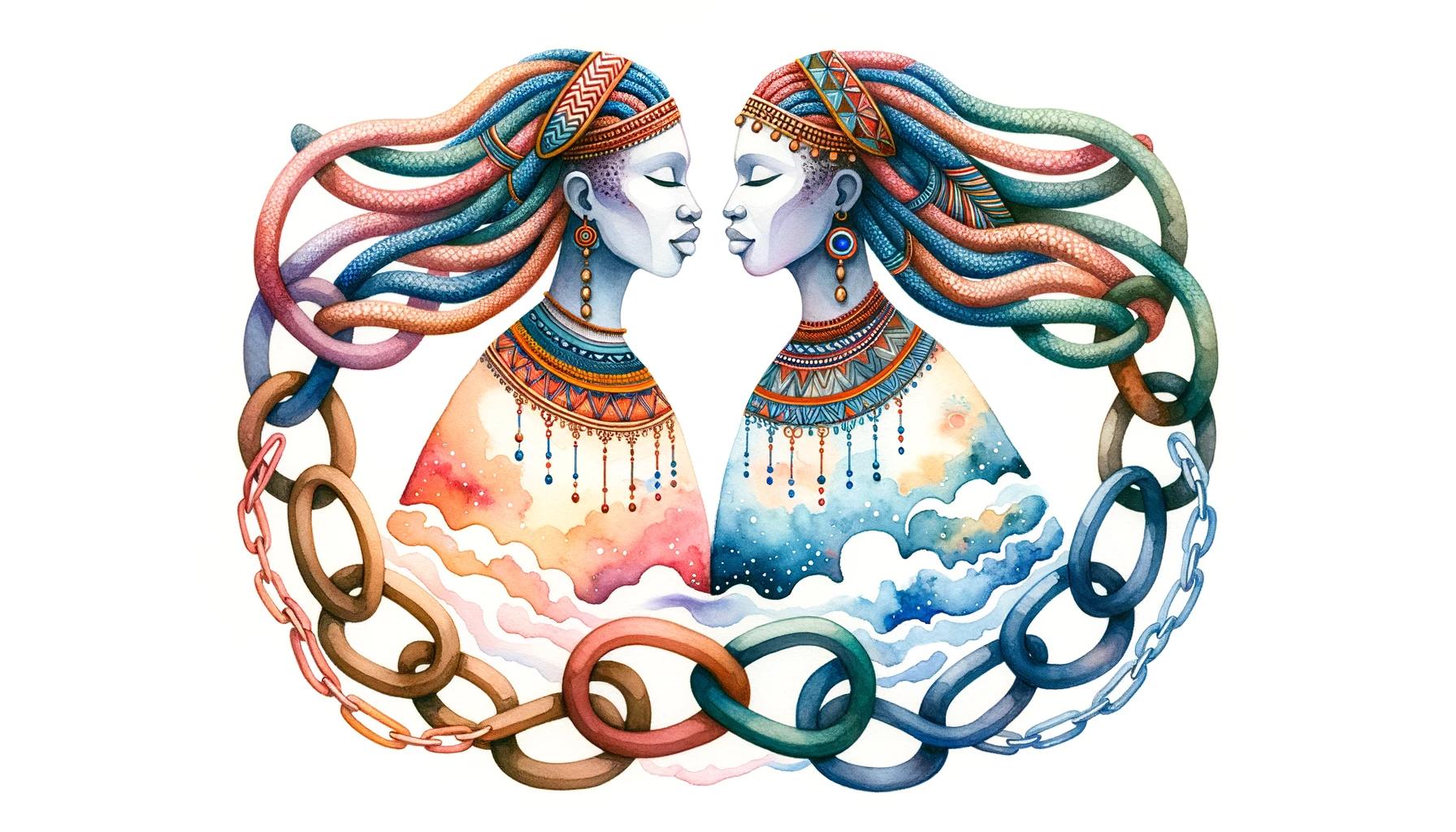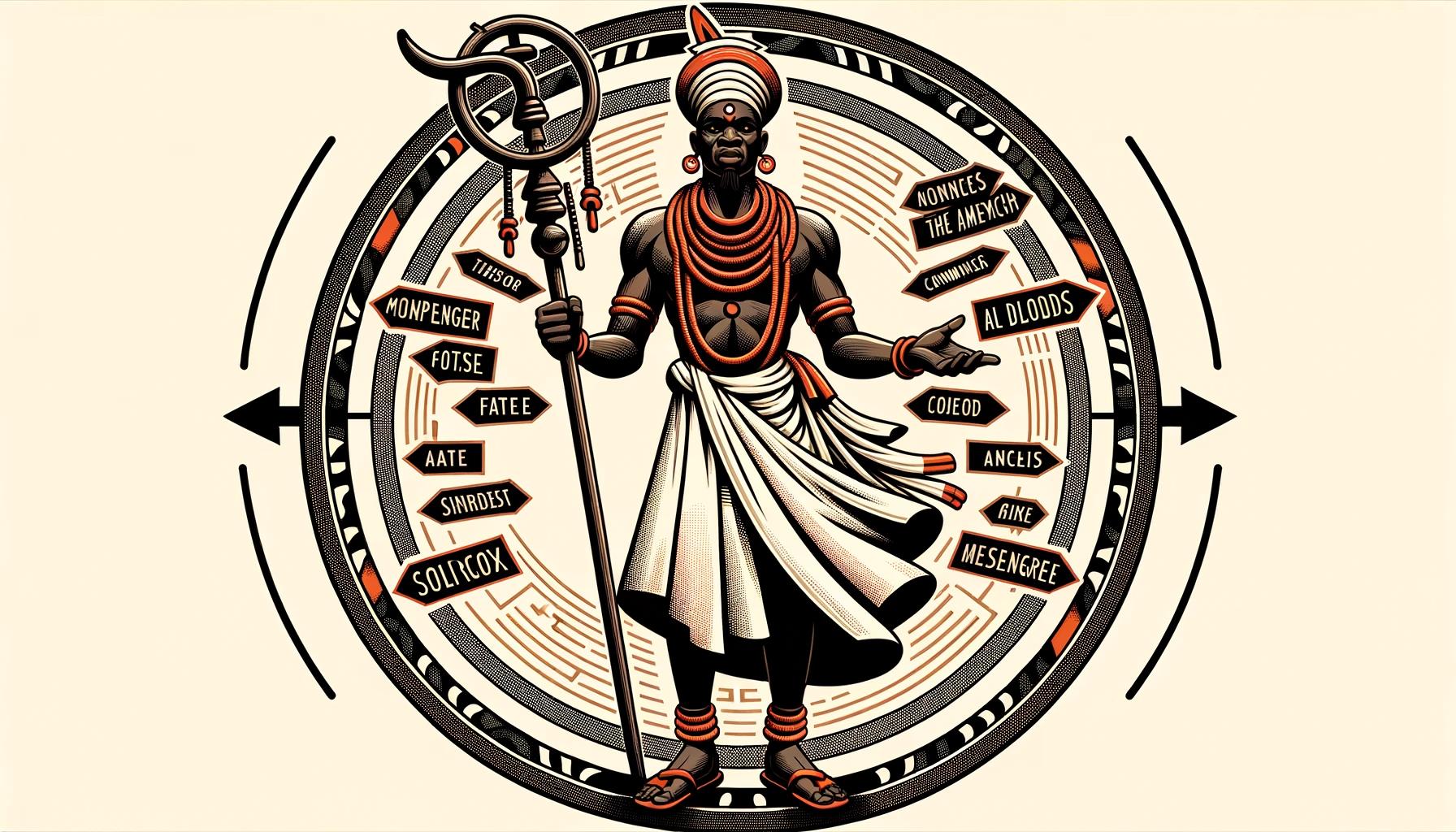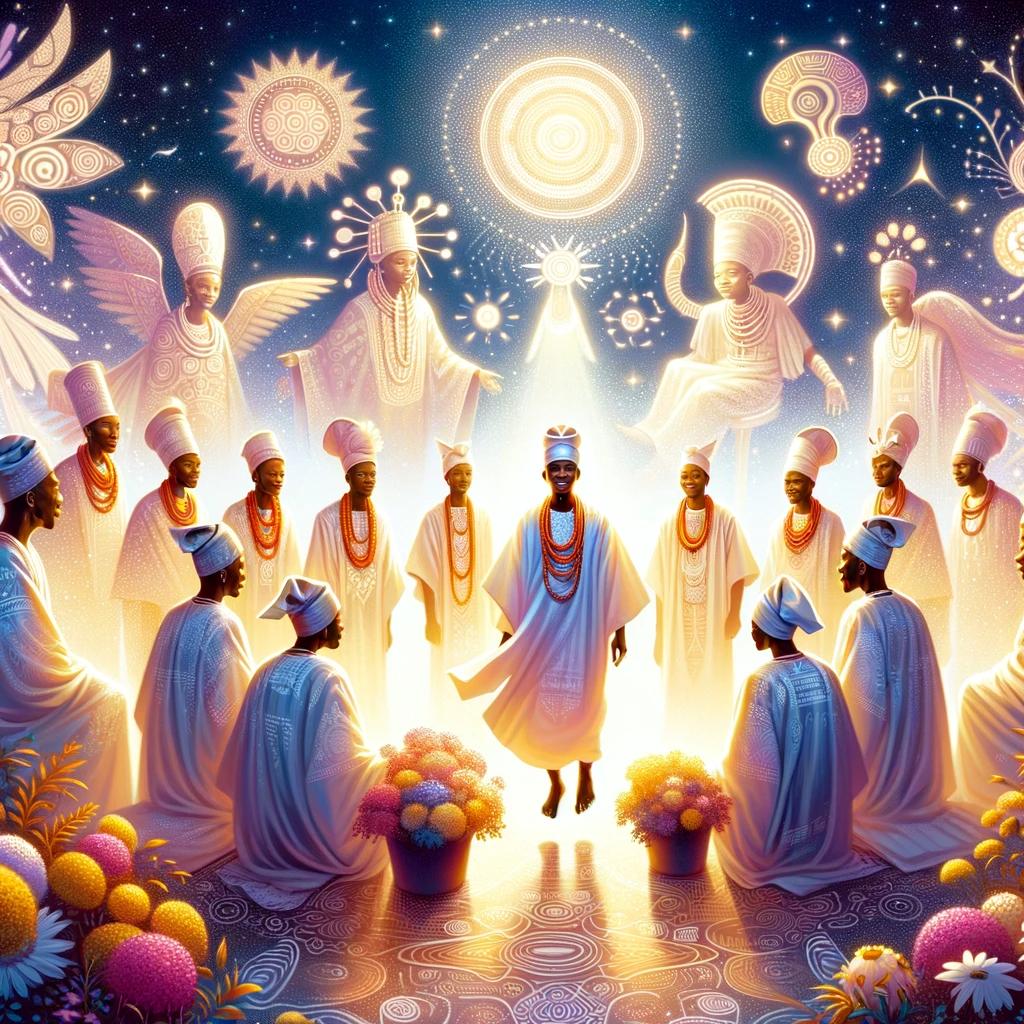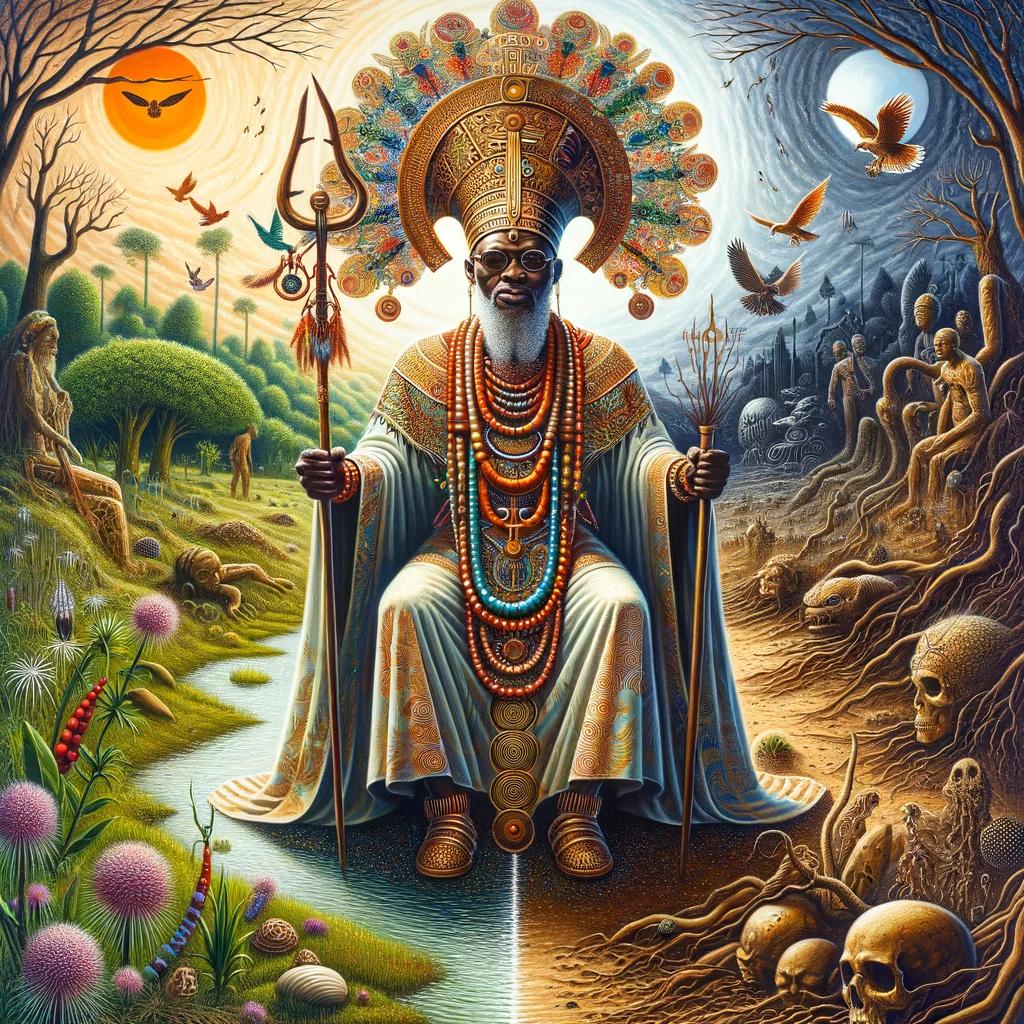Orisha Oko Yoruba: Exploring the Ancient Yoruba Deity in American Culture
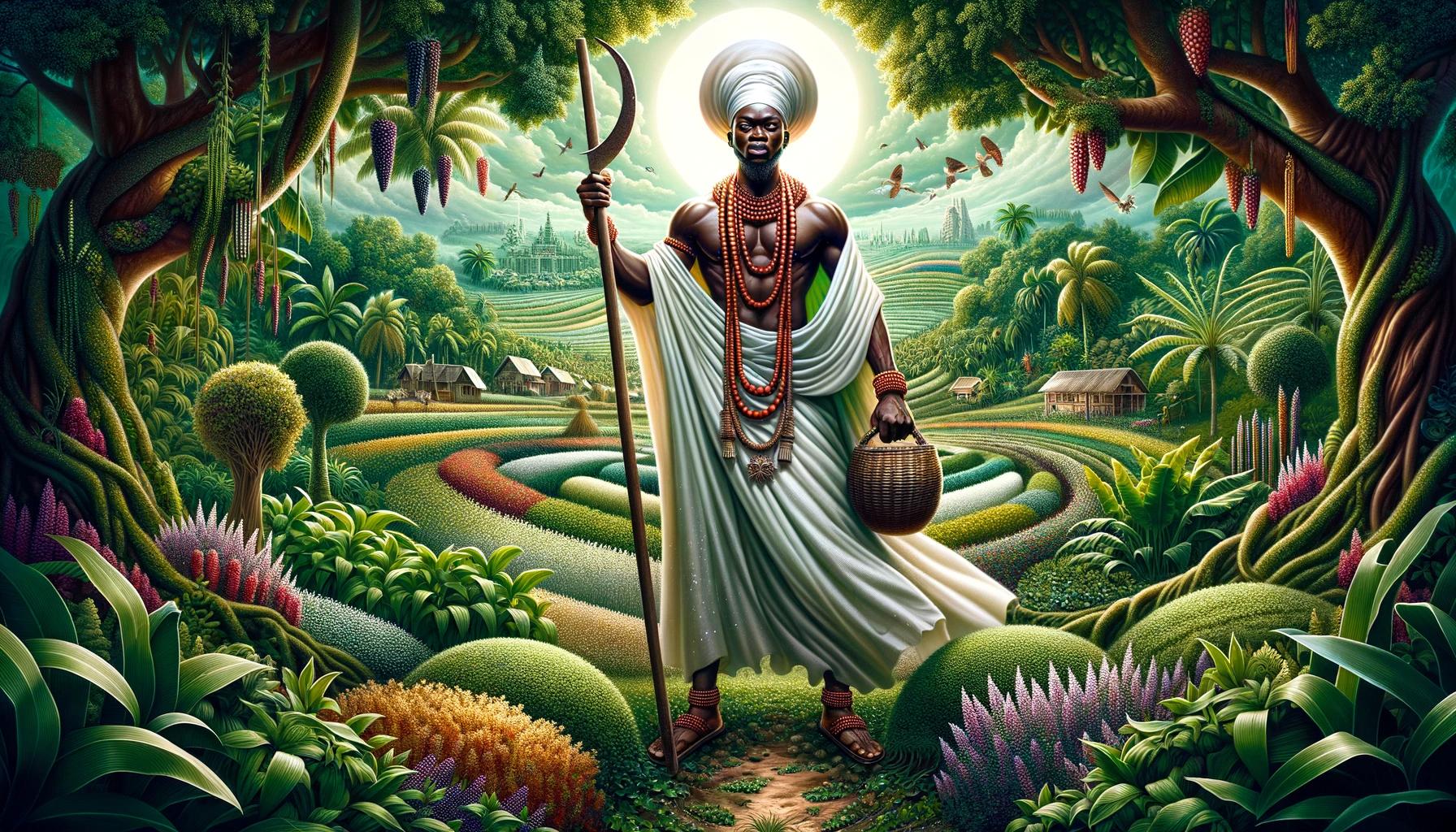
Orisha Oko is an important deity in Yoruba mythology, revered as the god of cultivation, fertility, and agriculture. Worshiped by Yoruba farmers, Orisha Oko is associated with bountiful harvests and the granting of children to those who seek them.
In this article, we will explore the origins, significance, rituals, and legends surrounding Orisha Oko, as well as his role in Yoruba religion and the Santeria tradition. We will also examine the symbolism and representations associated with Orisha Oko, as well as modern practices and devotion.
Get ready to delve into the world of Orisha Oko Yoruba!
The Origins and History of Orisha Oko
Orisha Oko is a significant deity within Yoruba mythology, with a rich history and origins deeply rooted in the cultural traditions of the Yoruba people. This divine entity is known as the god of cultivation, fertility, and agriculture, embodying the essence of sustenance and abundance.
The ancestral history of Orisha Oko traces back to ancient Yoruba communities, where farming and agriculture played a vital role in the daily lives of the people. As the Yoruba civilization flourished, the cultivation of crops became crucial to their survival and prosperity.
It is within this context that the worship and reverence for Orisha Oko began to take shape.
Orisha Oko’s origins are intertwined with the spiritual beliefs and practices of the Yoruba people, who recognized the divine presence and power behind the growth of crops and the fertility of the land.
Over the centuries, Orisha Oko’s significance grew, and rituals dedicated to his worship became embedded in Yoruba culture.
As time passed, Orisha Oko became increasingly associated with fertility, not only in terms of agricultural abundance but also in terms of human procreation.
The Yoruba people believed that Orisha Oko had the ability to grant children to those who sought his blessings, further solidifying his importance within the community.
Orisha Oko’s influence extended beyond the realm of agriculture and fertility.
He was regarded as a divine judge who resolved disputes, particularly those related to accusations of witchcraft. The Yoruba people sought his intervention and protection in rituals held at Orisha Oko’s sanctuaries, predominantly led by devoted women seeking relief from the effects of witchcraft.
Throughout Yoruba history, Orisha Oko was venerated and worshipped in various forms and rituals. Today, his presence continues to be celebrated and honored not only within the Yoruba religion but also in the Santeria tradition, which has incorporated elements of Yoruba spirituality into its practices.
The ancient origins and multifaceted history of Orisha Oko serve as a testament to the enduring significance of this deity within Yoruba culture and the ongoing spiritual connections that exist between the Yoruba people and the divine realm.
The Significance of Orisha Oko in Yoruba Beliefs and Practices
Orisha Oko holds great significance in Yoruba beliefs and practices, particularly as the god of cultivation and fertility. Let’s delve into the various aspects of Orisha Oko’s significance in Yoruba religion:
Orisha Oko as the God of Cultivation and Fertility
As the deity of cultivation and fertility, Orisha Oko is revered by farmers and agricultural communities.
He is believed to bless the land with fertility, ensuring abundant harvests and the prosperity of agricultural endeavors. Devotees look to Orisha Oko for guidance in cultivating crops and seek his blessings for a fruitful harvest.
Rituals and Offerings Dedicated to Orisha Oko
Devotees of Orisha Oko engage in various rituals and offerings to honor and seek the deity’s favor. These rituals often involve prayers, songs, and dances performed in designated sanctuaries dedicated to Orisha Oko. Offerings typically include vegetables, root crops, palm oil-seasoned foods, smoked fish, roasted corn, as well as sacrificial offerings of chickens, doves, or Guinea fowls.
Legends and Stories Associated with Orisha Oko
Orisha Oko is surrounded by numerous legends and stories that highlight his wisdom and ability to overcome challenges. One such legend recounts the tale of an agricultural village plagued by birds that destroyed their crops.
Desperate, the villagers turned to Orisha Oko for help, and he devised a medicine to scare away the birds. However, due to mistrust, the villagers expelled Orisha Oko, only to realize their mistake when the birds returned.
These stories emphasize the importance of loyalty, humility, and the consequences of dismissing Orisha Oko’s assistance.
Orisha Oko’s significance in Yoruba beliefs and practices extends beyond his role as the god of cultivation and fertility.
His rituals, offerings, and legends provide devotees with guidance, blessings, and teachings that shape their spiritual journey within the Yoruba religious tradition.
Orisha Oko in Yoruba Religion and Santeria
Orisha Oko plays a significant role in Yoruba religion and the Santeria tradition, with his unique attributes and influences in both belief systems.
Orisha Oko’s Role in Yoruba Religion
In Yoruba religion, Orisha Oko holds a prominent position as the god of cultivation, fertility, and agriculture.
He is revered as the provider of abundant harvests and the bestower of children to those who seek his blessings. As a deity associated with the earth, Orisha Oko is often depicted as an elderly figure carrying a staff, symbolizing his role as a guide and protector of farmers.
Orisha Oko in the Santeria Tradition
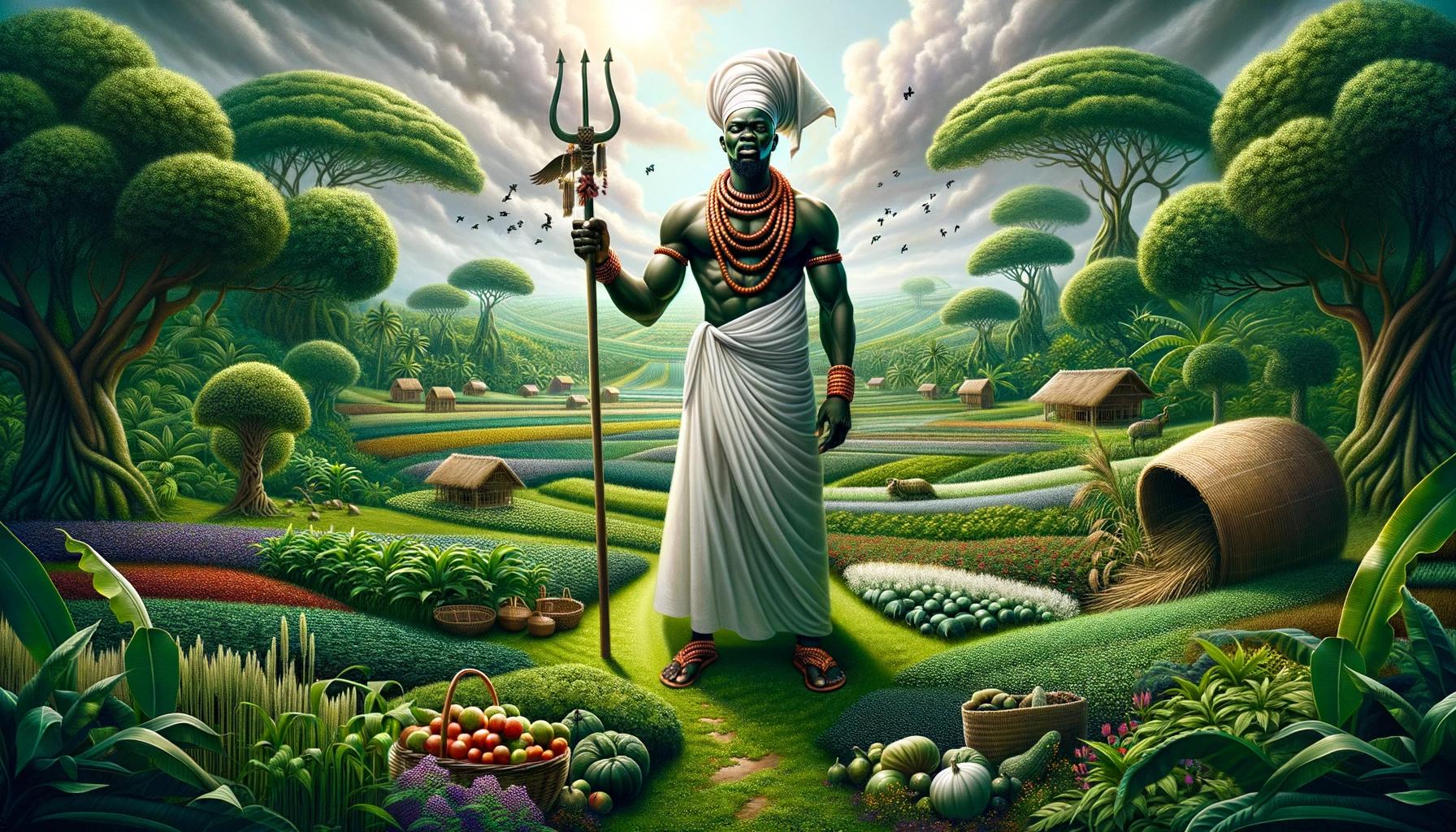
In the Santeria tradition, Orisha Oko’s importance is also recognized. Santeria incorporates elements of Yoruba religion and Catholicism, blending the worship of Orishas with Christian saints. Devotees of Orisha Oko seek his guidance and blessings in agricultural endeavors, as well as protection against malevolent forces and the effects of witchcraft.
Connections between Orisha Oko and Other Yoruba Gods
Orisha Oko does not exist in isolation within Yoruba religion. There are several connections and relationships between Orisha Oko and other Yoruba deities. One such connection is with Yemoja, the goddess of the sea and motherhood.
Yemoja is believed to be Orisha Oko’s mother, emphasizing his association with fertility and childbirth. Additionally, Orisha Oko is often depicted alongside other agricultural deities such as Ogun, the god of iron and war, and Osanyin, the deity of herbal medicine.
These connections further enhance Orisha Oko’s significance in the pantheon of Yoruba gods.
Symbolism and Representations of Orisha Oko
Orisha Oko, deeply rooted in Yoruba mythology, is associated with a range of symbols and representations that hold significant meaning within the religion. Let’s explore the various aspects of symbolism linked to Orisha Oko.
Colors, Numbers, and Symbols Associated with Orisha Oko
- Colors: Orisha Oko is traditionally associated with the colors green and brown, representing the fertility of the earth and the lushness of vegetation.
These hues symbolize abundance, growth, and the vitality of agricultural landscapes.
- Numbers: The number seven holds particular significance in the realm of Orisha Oko. It represents divine perfection and harmony with nature.
Additionally, the number seven is associated with the seven days of the week, signifying the cyclical nature of the agricultural process.
- Symbols: Orisha Oko is often depicted holding a hoe or a staff, representing his role as the god of cultivation and agriculture.
These symbols embody the power to till the soil, bring forth sustenance, and foster fertility.
Orisha Oko’s Sacred Places and Objects
Within Yoruba religion and the Santeria tradition, Orisha Oko is revered in specific sacred places and through revered objects. Here are some notable aspects:
- Sacred Places: Orisha Oko is associated with the sacred spaces of arable lands and fertile fields.
These locations hold immense spiritual significance, representing the foundation of agricultural abundance and sustenance.
- Sacred Objects: In rituals dedicated to Orisha Oko, devotees use specific objects to honor and connect with the deity.
Offerings such as vegetables, foods seasoned with palm oil, smoked fish, and roasted corn are presented as acts of reverence and gratitude. Ritualistic tools such as hoes and staffs are also utilized as symbols of cultivation and cultivation-related blessings.
By understanding the symbolism and sacred representations of Orisha Oko, one gains profound insights into the connection between spirituality, nature, and the fundamental role of agriculture in Yoruba beliefs and practices.
Orisha Oko Today: Modern Practices and Devotion
Contemporary Worship of Orisha Oko in America
In the present day, the worship of Orisha Oko continues to thrive among Yoruba diaspora communities in America. Devotees gather in temples, homes, and community centers to pay homage to this deity of agriculture and fertility.
The rituals and practices associated with Orisha Oko have adapted to the American context, incorporating elements from both Yoruba traditions and local cultural influences.
Cultural Influences on the Perception of Orisha Oko
The perception of Orisha Oko in America is shaped by the diverse cultural backgrounds of its devotees.
As individuals from different ethnicities embrace the Yoruba religion and its deities, including Orisha Oko, they bring their own cultural perspectives, customs, and expressions of devotion. This fusion of cultures enriches the worship of Orisha Oko and makes it a dynamic and evolving practice.
Challenges and Controversies Surrounding Orisha Oko’s Worship
Despite its popularity, the worship of Orisha Oko also faces challenges and controversies in America. Some individuals view it as a foreign or exotic practice, leading to misunderstandings and stereotypes.
Additionally, conflicts may arise within Yoruba diaspora communities regarding differences in interpretations, rituals, and leadership. These issues highlight the need for open dialogue and education to foster understanding and acceptance of Orisha Oko’s worship.
FAQs: Common Questions About Orisha Oko Yoruba
Are you curious about Orisha Oko Yoruba? Here are answers to some common questions you may have:
Is Orisha Oko only worshipped by farmers?
No, Orisha Oko’s worship is not limited to farmers. Although he is revered as the god of cultivation and fertility, anyone can become a devotee of Orisha Oko. His blessings extend beyond the agricultural realm and encompass prosperity, good fortune, and health for all who seek his guidance and protection.
How does Orisha Oko relate to fertility and childbirth?
Orisha Oko is closely associated with fertility and childbirth. Not only does he provide fertile lands and abundant harvests, but he also grants the gift of children to those who seek it.
Devotees often turn to Orisha Oko to pray for fertility, a safe pregnancy, and healthy childbirth. He is believed to oversee the cycle of life and the miracle of creation.
Can anyone become a devotee of Orisha Oko?
Yes, anyone can become a devotee of Orisha Oko. Unlike some other deities, the worship of Orisha Oko is open to both men and women. His devotees come from diverse backgrounds, and anyone who feels a connection with him can seek his blessings and guidance.
The important aspect is one’s sincerity and devotion to honoring Orisha Oko.
What are some key rituals and practices associated with Orisha Oko?
Devotees of Orisha Oko engage in various rituals and practices to show their reverence and seek his favor. Some common rituals include offerings of root vegetables, seasoned foods with palm oil, smoked fish, and roasted corn.
Sacrifices of roosters, doves, and guinea hens are also made. These rituals are performed at sacred sites or in homes, invoking Orisha Oko’s presence and seeking his blessings for fertility, abundant harvests, and overall well-being.
How does Orisha Oko compare to other Yoruba deities?
Orisha Oko holds his own unique place among the pantheon of Yoruba deities. While each deity has distinct attributes and roles, Orisha Oko is known as the god of cultivation, fertility, and agriculture.
His association with fertileness and sustenance links him to other gods and goddesses in the Yoruba tradition, such as Yemoja (the goddess of the ocean) and Oshun (the goddess of love and sweet waters).
Each deity has a specific domain, and together, they form a rich tapestry of Yoruba spiritual beliefs and practices.











